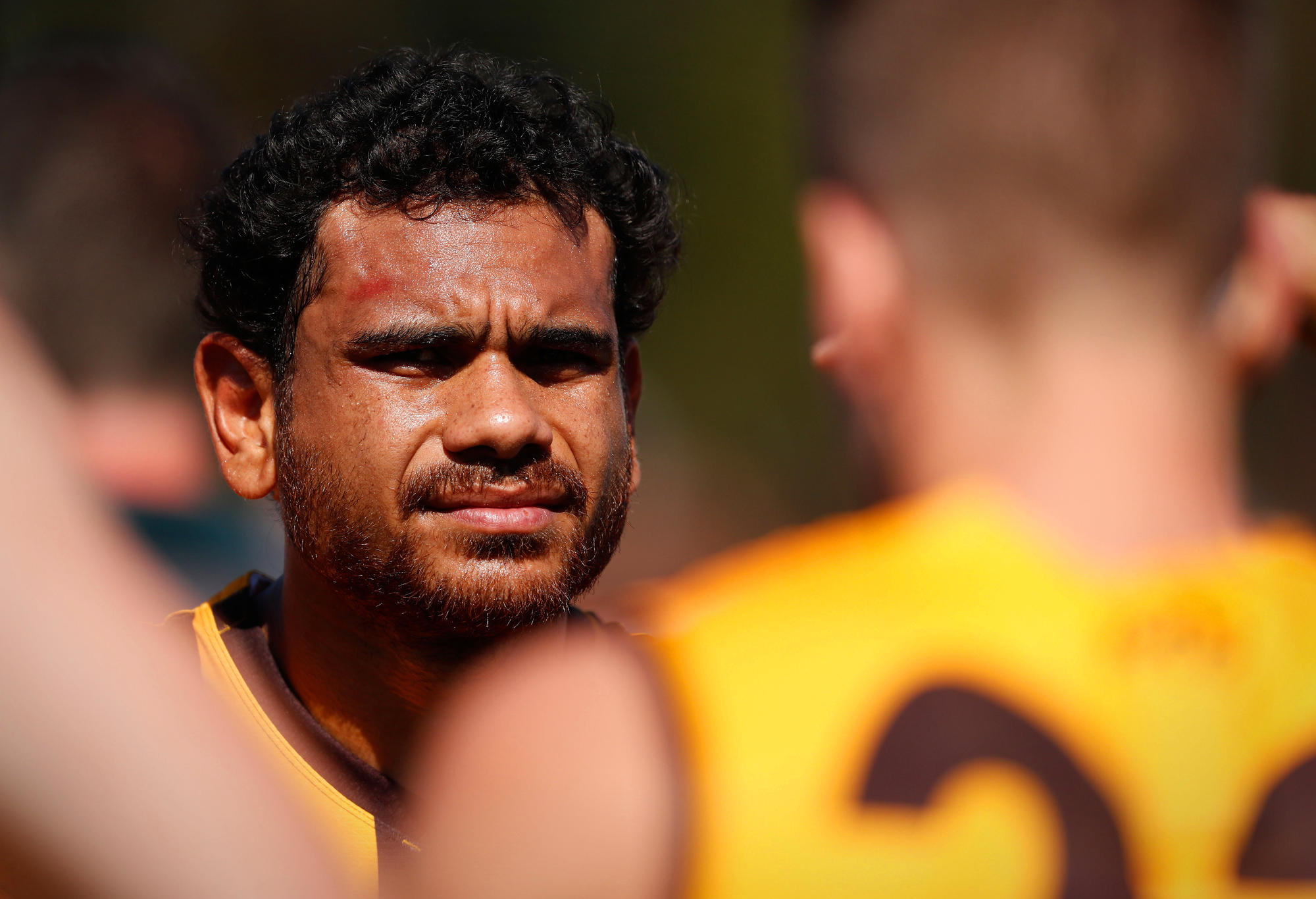A rich man’s sport? It’s hard not to see that a class divide still exists at the top in modern-day AFL

Is life in the Australian Football League only for the rich?
I raise the question after recent remarks by former Geelong forward and Fox Footy commentator Cameron Mooney, when asked about the key factor in Geelong’s quarter-century dominance, certainly begs the question.
He told Fox Footy: “If they’re a good person and come from a good family, yet the other player might be a better player but unstable – we’ll always go with the good family – and Sydney do the same too”.
Mooney probably did not intend to have such loaded interpretations extrapolated from his words.
Regardless, the phrases ‘good family’ and ‘unstable’, are common in football recruiting circles, dripping with historical undertones of classism inherent within our society.
To me, good family means rich, private schooled, usually white. While, unstable could be taken as poor, state-schooled, and, well, not white.
Indeed, this problem goes deeper than Mooney’s off-the-cuff remarks. Much deeper.
In 2019, Jake Naill of the Age described the AFL as an organisation ‘taken over’ by Australia’s affluent private schools.
Naill found over 25 per cent of the 2017 draft class originating from 11 of Victoria’s most prestigious schools, including four of the first five chosen.
Further research by Professor John Funder found a young man’s chances of being drafted in the AFL were four times higher if they attended a private school rather than a state one.
The Bulldogs, once a haven for footballers of Melbourne’s improvised west, had 13 private school boys on their list in 2021.
Of course, not all private school recruits are born with silver spoons in their mouths.
Many born with elite talent, yet into humble homes, are offered scholarships to attend these elite schools, including Cyril Rioli, whose Tiwi Island home could not be further away from Xavier College than Jupiter is from Mars.
Cyril Rioli (Photo by Adam Trafford/AFL Media/Getty Images)
But it is not enough for these young men to simply be good at football to access such opportunities. One must also behave in accordance with upper-class values.
As former Melbourne Grammar headmaster Paul Sheahan explained, scholarship recipients must be ‘beacons on the hill’ in all facets of their lives, not just on the football field.
This trend is hardly surprising, for it is shadowed at footballing HQ.
In 2012, then AFL CEO Andrew Demetriou joked that if you’ve been an Old Xav (a former Xavier College student), or played with the Uni Blues (the Melbourne University football team), you’re probably qualified for a job with the AFL.
Little has changed since. New AFL CEO Andrew Dillon played for Old Xavierians in the Victorian Amateur Football Association alongside many other senior industry figures, including Simon Lethlean and Dan Richardson.
Dillon also attended the same Alma marter (Melbourne University) as his predecessor, Gillon McLaughlin.
The AFL now appears to be governed by a small circle of clubmates.
As Herald Sun journalist Michael Warner explains: “A symbiotic relationship exists between many of the game’s key stakeholders. The old school ties that bind are everywhere”.
The irony of this drift is that it contrasts with football’s traditionally heterogenous face.
The Victorian Football League’s (VFL) powerbase was composed of a core of clubs catering to Melbourne’s working-class community, including Collingwood, Richmond, Fitzroy and Carlton.
In 1916, these four clubs refused to bow down to the demands of the blue-blooded Melbourne and Essendon clubs to abandon play, so as not to distract from the national war effort.
A defiant Collingwood secretary Earn Copeland declared football fans were entitled to the ‘working man’s relaxation’, war or no war.
The VFL was just as supportive of working fans during the dark days of The Depression.
Gate fees were waived for any patron displaying a sustenance card (the government’s welfare system), while tickets for everyone else cost less than a bottle of beer.
Toby Greene. (Photo by Graham Denholm/Getty Images)
The vast majority of the VFL’s playing body, meanwhile, counted themselves as strictly proletarian.
A 1940 survey conducted by the Sporting Globe found less than 25 of 191 players working within the professions (doctors, lawyers, etc).
Most earned a living as clerks, brewers, drivers, mechanics, railway workers, printers, labourers, bakers and in other poorly paid vocations.
Richmond legend Jack Dyer even recalled older players refusing to pass him the ball in his early days, for fear they might lose their positions and “the extra bit of depression day money coming in…They were desperate years and desperate men”.
Football’s lean toward high society appears to have occurred during the VFL’s transformation into AFL and with it a focus on organising a more commercially minded sporting code.
The best seats on Grand Final day were soon sold to corporate boxes for top dollar, rather than the humble fan who camped outside all night in the wind and the rain.
Club boards became littered with university-educated occupants, rather than dedicated former players.
Where once private school boys were ignored by recruiters for being ‘softer’ than ‘hardscrabble kids’, now one of the first questions asked on Draft Night is: ‘What school are they from?’
Sports opinion delivered daily
Admittedly, there remain many recent cases of rags-to-riches stories within the competition, including Toby Greene, Dustin Martin, Adam Treloar, Majak Daw, Aliir Aliir, Buku Khamis and more.
But even then, the road to AFL stardom increasingly requires such prospects to run through the narrow doors of Xavier College and Melbourne Grammar to be given the opportunity.
The risks associated with football being overtaken by a ‘boys club’.
Warner explains, is like that facing any other powerful organisation: “Good people turn a blind eye. Few speak out, few rock the boat, and when they do, they’re attacked, blackballed or ostracised. Rewards for playing ball and keeping it all in-house are rich. Take your medicine. Suck it up. Don’t become an enemy of the state”.
